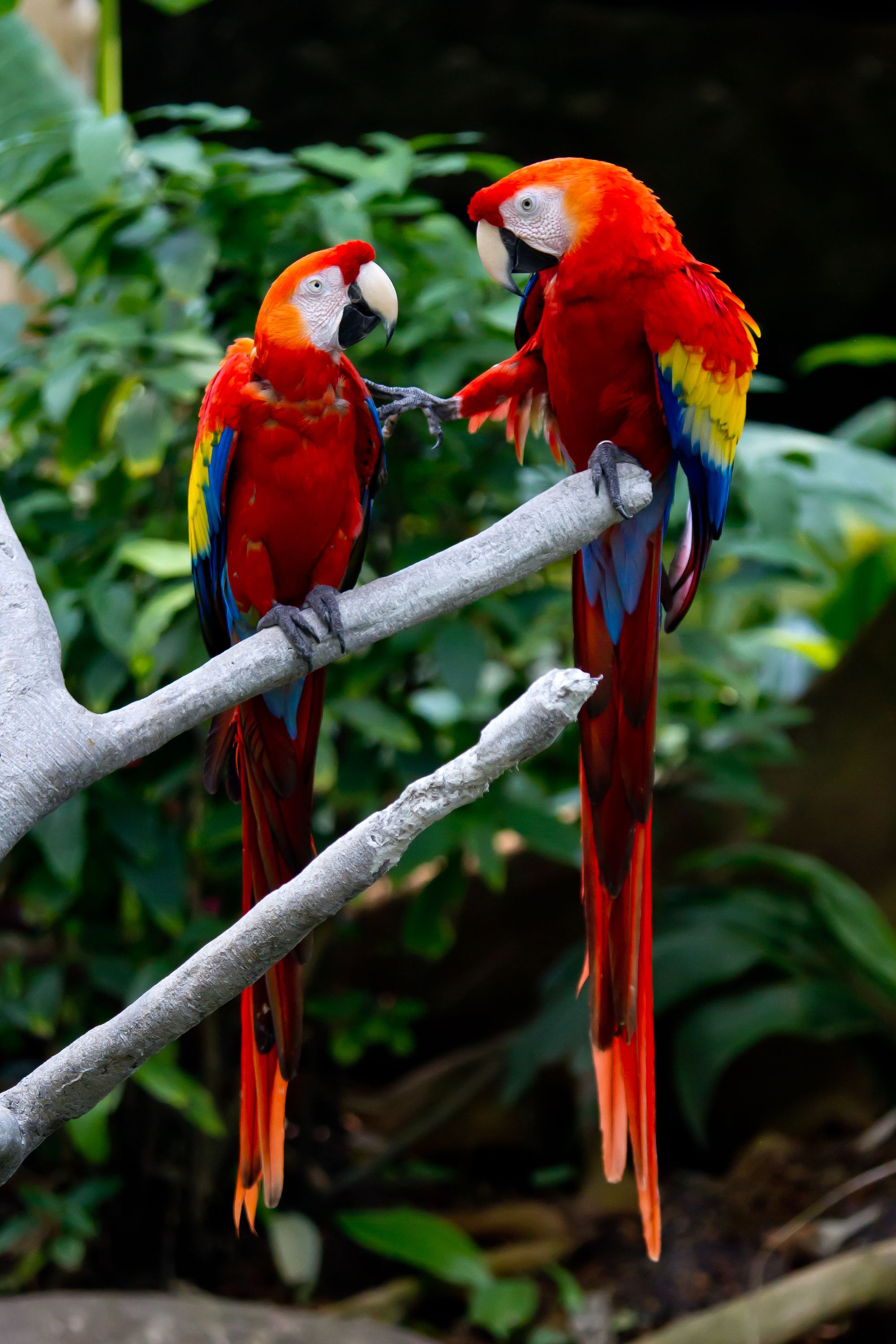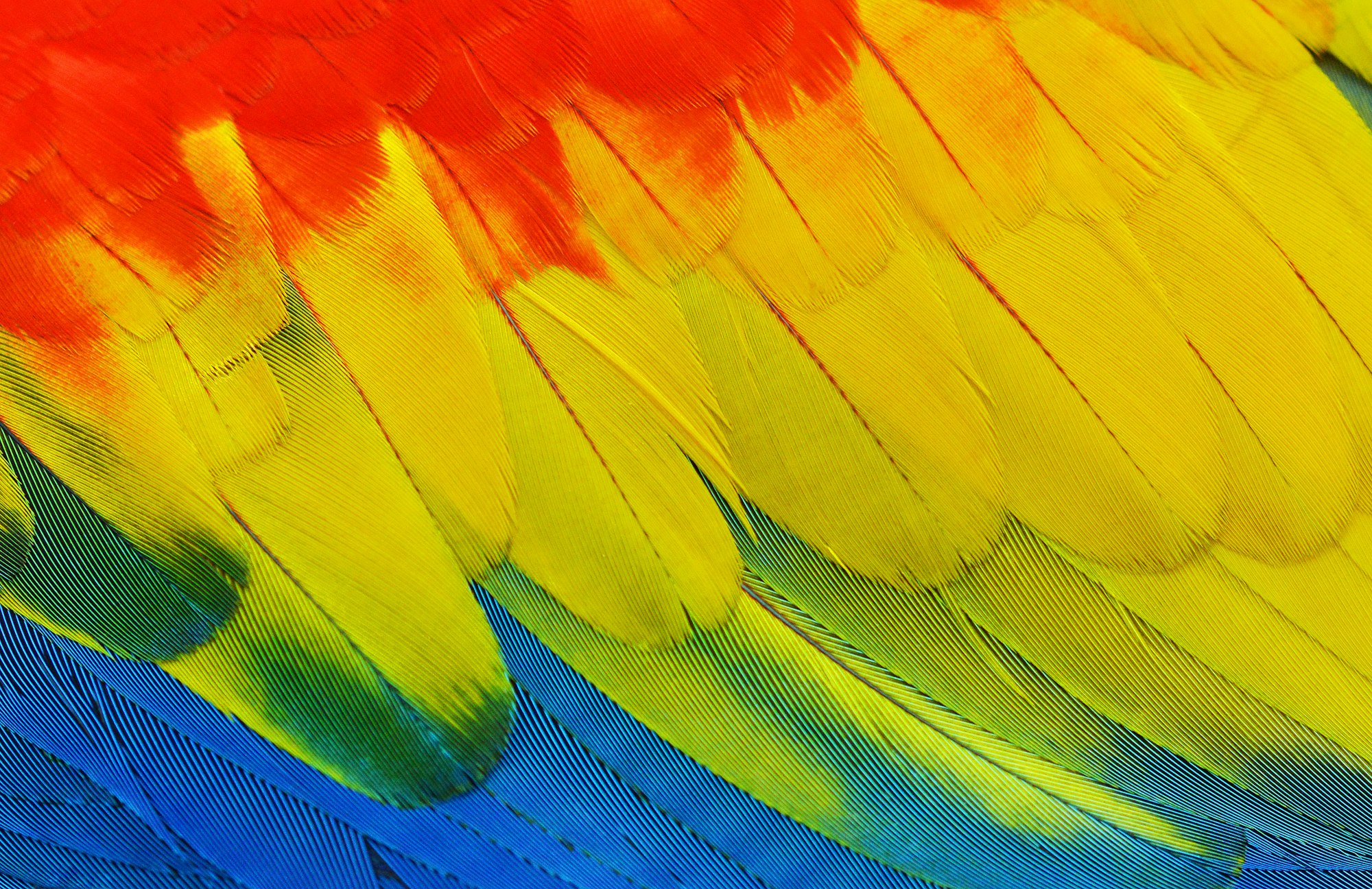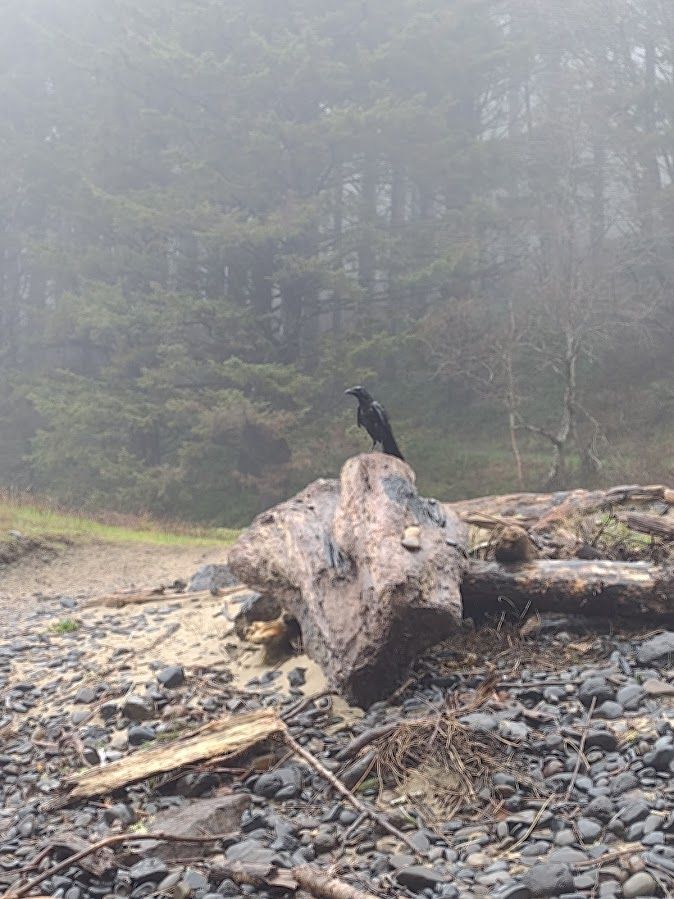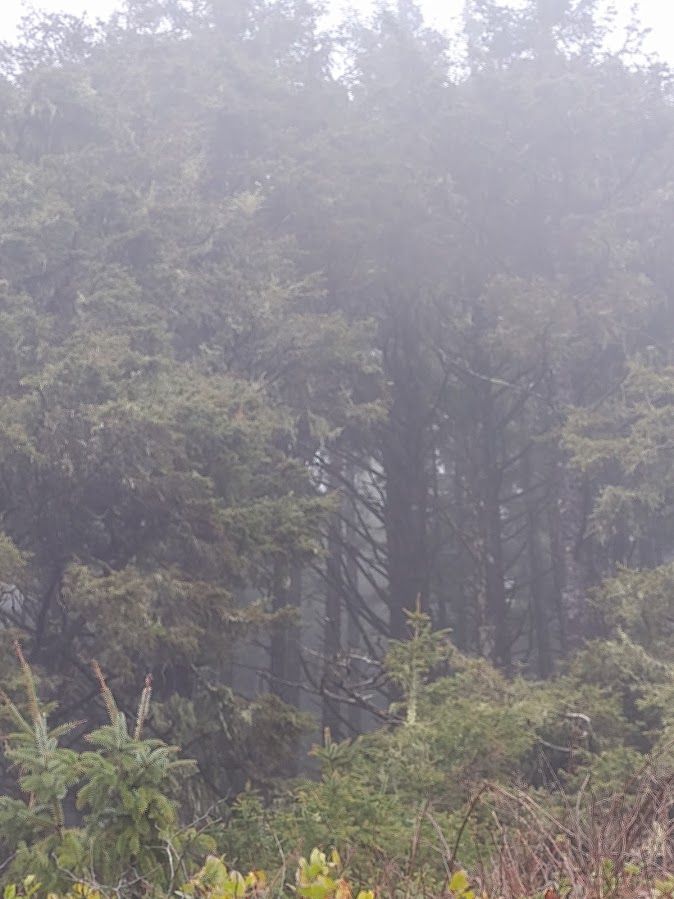
The wisdom found in beauty and play is all around us. Too many of us are missing it
Hump days, which are my midweek vacay from constant chores and writing, are spent on the Oregon Coast this time of year. I've been reporting what I find, often gorgeous sand art and friendly people. I'm trying to encourage all of us, where possible, to head out into nearby hinterlands to give our brains the vacay they need.
Nature heals, teaches, informs and delights. The more time we spend in Nature the more we can both enjoy life more and get more creative, as well as be far more energized about saving the nature we have left. But I'm ahead of myself.
Last week I was at Heceta Beach, which sports a lighthouse on a rocky promontory. What I found there reminded me vividly of Dr. Carl Safina's most recent book, Becoming Wild, How Animal Cultures Raise Families, Create Beauty, and Achieve Peace.

Safina describes the birds:
The scarlet macaws are a type of long-tailed parrot, "bright flashes of extravagance, colored like outlandish cornucopias of tropical fruit."
From the NPR article:
Safina concludes that beauty is an evolutionary force. Here the scientist collides with the poet: "The world appears beautiful so that the living may love being alive in it."
Collectively we as humans don't appear to share the same appreciation for the world's beauty. Witness what we do with it. Are doing with it right now.
Safina is a scientist, self-described seeker and a magnificently fabulous writer. I have all his books, and am regularly reminded how far I have to go in order to truly be considered a good writer every time I dive into one of his. That our world speaks so eloquently to the poet in him is part of why I read him, for the way he sees the world allows me to better appreciate it through my own lens.
His latest book takes us to visit various animal families, how they live, love, play and express their extraordinariness. For this article I am going to draw a bit from his visit to Tambopata see the magnficent scarlet macaws, birds of such breathtaking beauty that they are almost blinding.

Safina points out in that friendly but insistent way of his to make fun of our human arrogance that "Parrots have been perfecting parrot-ness for the aforementioned fifty million years." They, and the apes and whales the book visits, preceded us by a very long measure. Their family units, unique behaviors and abililty to play, love, mate and survive can teach us about our humanity. But not if we make it impossible for them to make it in an increasingly polluted world.
He writes:
“Beings who've succeeded on earth for millennia don't seek, and should not require, our approval. They belong here as do we. We do ourselves no favors by asking whether their existence is worth our while. We are hardly in a position to judge, hurtling and lurching along as we are with no goal, no plan except: bigger, faster, more.” (author bolded)
But I digress.
This is about play.
Safina, in his observation of beautiful and loving creatures at play, points out the importance of such behavior in allowing those animals to learn, to evolve, to coexist. Something, kindly, today's warring world knows little about, as we bend our will onto each other and onto the world with pitiless strength, and at great cost.
Which is just one reason I take Hump Days.

Here's where reading Safina finds its way into my daily life. Last Wednesday the Oregon coastline was cold, rainy, windy and magnificent. I loaded up on down and Goretex and pulled up at Heceta. Offshore the waves were foaming, white, pounding and breathtaking. The air was full of fog and mist, the incoming tides smashing the ragged rocks.
On the south side of the beach, Cape Creek carries fresh water into the sea, where the inexorable flow of fresh does a constant dance with the even more inexorable flow of salt water towards the land. Watching the two mingle and meet is wondrous:
The rain was steady that day and the waves were explosive. I'd already had breakfast. Boredom was the whole point. Yet being in such a place doesn't quite incite boredom. The real outcome was to wash away all the detritus that attaches itself to me from being online, inside for too long and not being in Nature. Here, boredom, such as it is, is to be surrounded by beauty. That's the kind of boredom that ends up in play.
The beach draws all kinds of visitors, so if you're the friendly type you can be hugely entertained by other folks' dogs, their stories and conversation. Being bored, the way I do it, has each week gifted me with ideas, experiences, plenty of wet pets and a slew of gorgeous photos. Not a bad way to spend a day.
But last week was special.
Just after lunch time I noticed a few gulls flying in. Then, in a matter of minutes, quite a few. They flew up the creek, landed in the flow towards the ocean, and rode the flow like a flock of body surfers. The moment the waves crashed, they flew skyward and went back for more.
No fishing. Nothing but pure, unadulterated play. After a few rounds on the waters, some sat on the rocks and preened. Others gathered on a smallish beach.
Transfixed, I nearly missed the chance to film some of it. This is the last, before most of the gulls retired to the rocks to hang out for a while:
Reading Safina teaches me how to see and experience our natural world with better eyes, and a vastly more informed ability to observe. While I might have seen this as playful, Safina's in-depth look at the loving relationships of whales, the interactions of magnificently-colored and very intelligent macaws and our cousins the chimpanzees were reminders that beauty exists for a reason.
Play has a purpose.
The world we are so busy sullying and ripping apart and flattening with concrete is intended to be beautiful. The creatures who preceded us in it know how to preen, prance and dance in it.
How to play in it.
We don't, for the most part. Our struggles, our strutting and our insistence on our superiority to those creatures who exist peacefully in a world suited for them is a statement about our lack of appreciation for the gift that is Nature.
This is why I travel. It's why I read. It's why I take regular Hump Days to see what we have left, what there is to celebrate, and what we must assiduously protect.
It's also why I share these authors and books with Dear Reader, the vastness of the world I travel, the value of taking a day to do nothing but be in the natural world which can and does heal us better than any $500 day spa.
To be in the world surrounded by creatures at play is a reminder that our world is worth fighting for, and not about border disputes and idiot egos.
It's about having a world to play in at all.

Comments powered by Talkyard.